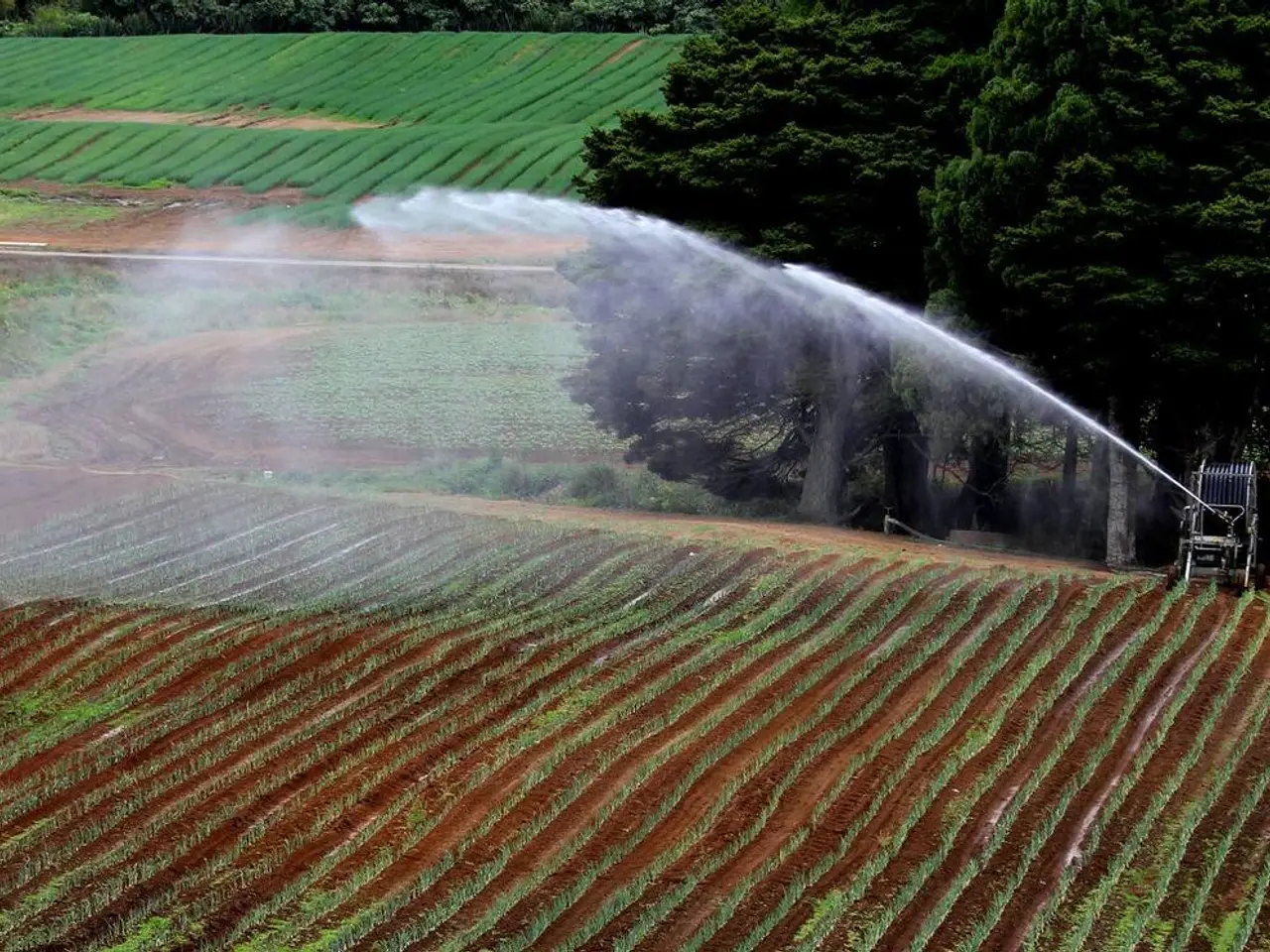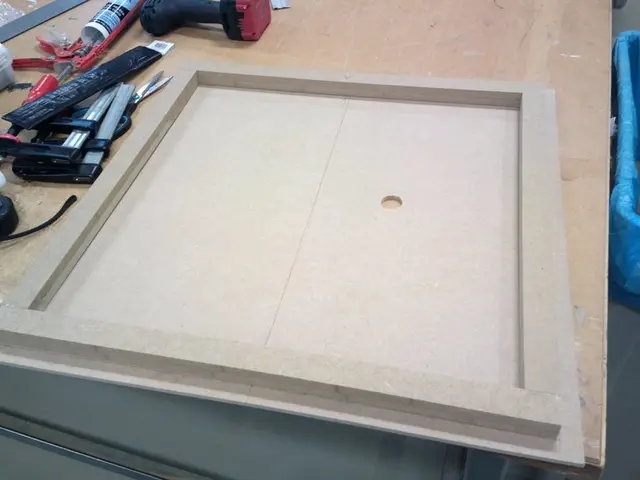Technology-driven Agriculture Tools Minimizing Resource Consumption Whilst Enhancing Harvest Output
Precision agriculture, a data-driven farming method, is revolutionising the agricultural landscape. This technology-enabled approach ensures optimal growth for crops while minimising waste and environmental impact.
At the heart of precision agriculture lies a suite of advanced tools. GPS, sensors, drones, and AI are just a few examples of the technology used to monitor and manage variability within fields. With precision agriculture, water, fertilizers, and pesticides can be applied exactly where and when they're needed, reducing overuse and waste.
Key components of this innovative approach include real-time yield monitoring, GPS-mapping of field variability, variable rate technology for targeted application of inputs, precision weed management, and differential spraying. Guidance systems also play a crucial role, enabling precise machine navigation across the field.
The benefits of precision agriculture are manifold. For water conservation, sensors and IoT devices help farmers control irrigation, reducing overwatering and conserving water resources. In terms of fertilisation, variable rate technology ensures nutrients are supplied only where needed, reducing fertiliser waste and lowering potential runoff that could pollute waterways.
Sustainable farming practices are also enhanced through precision agriculture. By targeting pest control only to infested areas, the use of chemical pesticides is minimised, protecting beneficial insects and reducing chemical runoff. AI-driven data analytics enable better decision-making for input use, enhancing yield without degrading soil or water quality.
Precision agriculture offers significant productivity and cost efficiency benefits. These technologies improve yields and reduce input costs by optimising resource allocation and reducing labour needs through automation.
Real-time data from precision agriculture technology allows farmers to make on-the-spot decisions. Smarter irrigation systems, such as those using soil moisture sensors and weather stations, can reduce water use by 20 to 40% while maintaining or improving yields. Precision agriculture equipment, like GPS-guided tractors and autonomous machinery, helps reduce fuel consumption and soil compaction.
Integrated dashboards, mobile apps, and IoT sensors empower farmers to make informed decisions based on real-time data. Drones and satellite imaging offer a bird's-eye view of farms, helping monitor crop health, spot pest or disease outbreaks early, and assess which areas might need more attention.
Rose Morrison, a dedicated advocate for environmental responsibility, aligns with this mission. With expertise in environmentally responsible living, she serves as managing editor at Renovated.com and through her passion project, The Landscape Guide.
The global market for intelligent landscaping systems, including tools like drip systems and remote moisture sensors, is projected to grow from $265.42 million to $2.45 billion by 2033.
Precision agriculture transforms traditional farming into a highly efficient, environmentally responsible system. By leveraging real-time data, advanced robotics, and smart decision-making tools, it optimises water use, fertilisation, and pest management for sustainable agriculture. Every drop of water saved, every pound of fertilizer optimised, and every field mapped with care in precision agriculture contributes to a more sustainable future.
- Climate change and environmental sustainability can be enhanced through precision agriculture, a data-driven farming method that utilizes technology such as GPS, sensors, drones, and AI.
- Rose Morrison, an advocate for environmental responsibility, supports the mission of precision agriculture, which optimizes water use, fertilization, and pest management for sustainable agriculture.
- The global market for intelligent landscaping systems, including drip systems and remote moisture sensors, is projected to grow significantly, reflecting the increasing adoption of technologies for sustainable living.
- Environmental sciences and technology play a crucial role in precision agriculture, enabling smart water conservation, efficient fertilization, and targeted pest control.
- Sustainable living is promoted through precision agriculture, with benefits including reduced overuse and waste of water, fertilizers, and pesticides, which in turn reduces environmental impact.
- Renewable energy and energy efficiency are intertwined with precision agriculture, as the technology reduces fuel consumption and soil compaction, contributing to a greener industry.
- Conservation and the reduction of environmental impact are core aspects of precision agriculture, which ensures optimal growth for crops while minimizing waste and overuse of resources.
- Lifestyle and home-and-garden choices can contribute to climate change solutions, as the adoption of precision agriculture techniques and intelligent landscaping systems can lead to water savings, reduced chemical use, and overall environmental sustainability.







